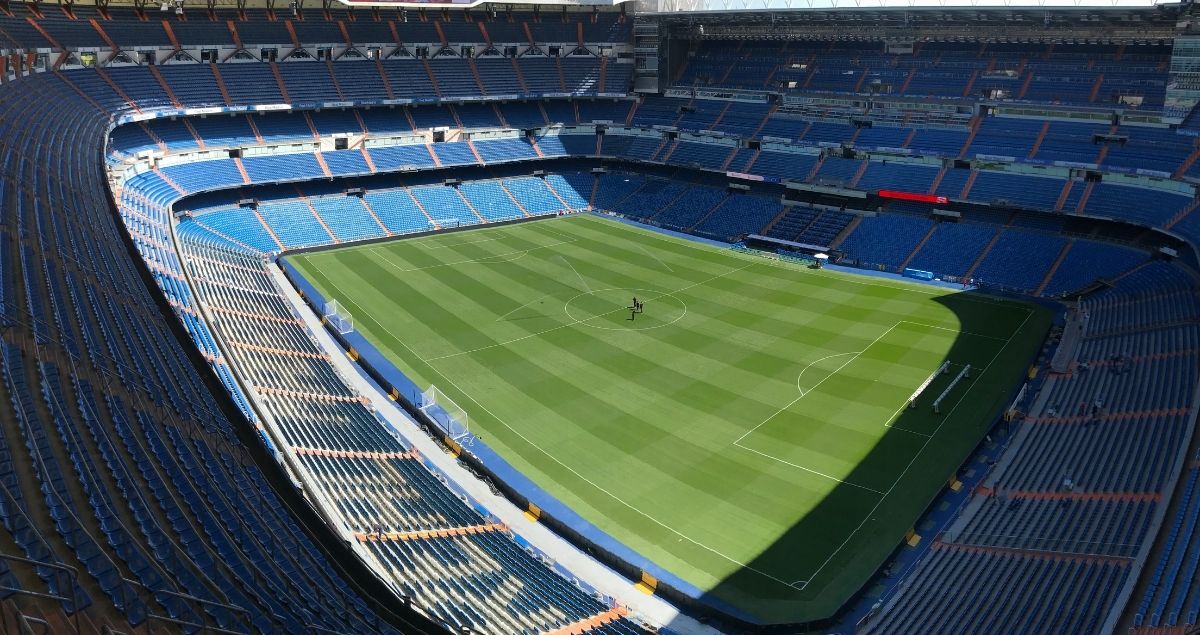Boost your betting experience and get up to $200 bonus right now!
National cup competitions like the FA Cup, DFB-Pokal, Copa del Rey, and others have long been the heartbeat of football traditions worldwide. But in 2025, a pressing question hangs over these historic tournaments: are national cups fading into irrelevance? Once the ultimate stage for dreams of giant-killings and underdog glory, many cups now wrestle with fixture congestion, declining attendances, and shifting fan interests. The FA Cup—the granddaddy of them all—has seen its magic dimmed amid Premier League dominance and UEFA competitions’ overwhelming allure. Meanwhile, Germany’s DFB-Pokal offers intense knockout thrills but faces challenges of its own, reflecting broader trends across Europe’s cups. From England’s EFL Cup to Scotland’s storied Scottish Cup, to France’s Trophée des Champions and beyond, domestic cups wrestle with modern football’s relentless evolution. Yet, despite the pressures, these cups still evoke unforgettable moments, fierce rivalries, and the pure chaos football fans crave. This article dives deep into the intriguing decline—and occasional resurgence—of national cups, revealing what these beloved competitions mean in 2025’s hyper-commercial football world and whether they can still capture the collective passion they once ignited.

Sommaire
ToggleWhy National Cups Are Struggling Amid Football’s Fixture Frenzy
The allure of national cup competitions is undeniable: they are giant-killing arenas where amateurs face giants, legends are born in one-off matches, and fairy-tale runs captivate fans of every stripe. Yet, in today’s football ecosystem, national cups are grappling with a brutal challenge that threatens their survival: fixture overload. Clubs battling a packed schedule of domestic leagues, European tournaments, and international breaks often approach cups with reluctant pragmatism rather than full throttle passion.
Take the FA Cup for instance. England’s oldest competition has suffered from fixture congestion, with top-flight clubs sometimes fielding weakened sides, signaling a shift in priorities. With the Premier League and UEFA Champions League offering enormous financial and prestige incentives, the FA Cup risks being relegated to a ‘consolation prize.’ This erosion of status is reflected in attendance fluctuations and TV viewership dips in early rounds. The modern football calendar, compounded by climate challenges and international tournaments expanding, has sliced cup schedules thinner and thinner.
The German DFB-Pokal narrates a similar tale but with added complexities. Played August to May with 64 teams from Bundesliga, 2. Bundesliga, and top 3. Liga clubs, alongside regional cup winners, the DFB-Pokal prides itself on democratic participation. However, even here, the pressure to rest marquee players during the first rounds seeps in. Although the tournament’s knockout format offers unpredictability, its status as Germany’s second-most important title places it in an uneasy middle ground. Bundesliga dominance, particularly Bayern Munich’s record 20 cup titles and consistent league success, compounds this effect—many feel winning the Pokal alone doesn’t define a season.
Several factors contribute to the waning prestige and tangible challenges for national cups:
- Fixture Congestion: Clubs juggling up to 60 matches per season often prioritize competitions that promise greater financial returns or European qualification.
- Squad Rotation and Weakened Lineups: Early rounds see clubs fielding fringe players or youth prospects, which dilutes competitiveness and excitement.
- Broadcasting Priorities: Premier competitions garner heavy media attention, leaving cups overshadowed.
- Changing Fan Behaviors: Casual and younger fans often focus on league status and star players over cup runs.
- Commercial Pressures: Sponsors and TV rights favor packed league calendars for consistent viewership rather than sporadic cup fixtures.
The decline is felt well beyond England and Germany. The Copa del Rey in Spain, traditionally revered for its historic giant-killings, also faces dilution with the rise of elite clubs purely focused on winning the league and European competitions. France’s Ligue 1 sees the Trophée des Champions as a glamorous curtain-raiser, yet its counterpart, the national cup, struggles to capture nationwide attention consistently. Even the US Open Cup, the oldest cup in U.S. soccer, fights for relevance in a league-focused market where the MLS takes center stage.
Yet, all is not lost. The cultural and emotional fabric surrounding these cups retains significant power if harnessed thoughtfully. The enduring promise of unpredictability, the romance of upsets, and the accessibility for smaller clubs can reinvigorate these competitions—if football’s stakeholders reconsider their scheduling, marketing, and fan engagement strategies.
| Competition | Number of Teams | Top-tier Clubs’ Priority Level | Main Challenges |
|---|---|---|---|
| FA Cup | ~700 (including qualifying rounds) | Moderate | Fixture congestion, early exits, weakened squads |
| DFB-Pokal | 64 | High (Second-most important title) | Bundesliga dominance, scheduling conflicts |
| Copa del Rey | 114+ | Moderate to Low | Priority on league and European success |
| US Open Cup | 100+ | Low | MLS schedule, limited fan interest |
Unique National Cup Structures: How England, Germany, and Others Keep Their Tradition Alive
The magic of cups lies partly in their structure: they allow teams from many levels to compete, offering rare matchups that captivate fans and create iconic moments. National cups vary wildly in format, eligibility, and prestige, directly shaping how fans and clubs perceive and value them.
In England, the FA Cup opens its doors to hundreds of clubs, from tiny local sides to Premier League giants, creating immense depth and narrative potential. Clubs progress through numerous qualifying rounds before the big boys enter, typically in the third round. This open-door policy fuels historic shocks and local pride—the giant-killings so cherished in football folklore.
England also maintains a unique two-domestic-cup system: the prestigious FA Cup coexists with the EFL Cup (Carabao Cup), limited to 92 professional sides in the English Football League and Premier League (excluding non-league). Contrast this with Germany’s cup system, where the DFB-Pokal serves as the single knockout national cup drawing 64 teams—Bundesliga, 2. Bundesliga, top 3. Liga finishers, plus regional cup winners.
The German format is particularly noteworthy due to its emphasis on amateur representation through regional Verbandspokal competitions feeding into the main tournament. Every team in the German system has a clear path to the DFB-Pokal, a rarity reflecting German football’s democratic ethos. However, reserve sides (like Bayern Munich II) are excluded since 2008, preserving the integrity of competition.
Portugal and Scotland also feature multiple cup competitions, blending tradition and local pride with competitive opportunity. The Scottish Cup, Europe’s oldest national trophy, carries immense historical value despite challenges from league and European commitments.
Not all countries have the resources or tradition to support two cups, but England’s model persists due to unparalleled footballing depth and fan devotion. Portugal, Scotland, and England’s smaller leagues manage the balance differently, but all strive to keep their national cups meaningful despite the growing challenges.
- FA Cup: Open to any club down to level 10 of the English football pyramid, creating potential for Cinderella stories and grassroots engagement.
- EFL Cup: Focus on professional clubs, shorter schedule, smaller prize but still an important silverware target.
- DFB-Pokal: 64 teams including professional and top amateur clubs, home advantage to lower-league teams in early rounds to balance competition.
- Scottish Cup: Almost as inclusive as the FA Cup, renowned for historic prestige and passionate local rivalries.
- Copa del Rey: Recently restructured to return to single-elimination matches, emphasizing unpredictability and fan excitement.
| Country | Number of Cups | Entry Level | Unique Features |
|---|---|---|---|
| England | 2 (FA Cup, EFL Cup) | Level 10 (FA), Professional only (EFL) | Deep pyramid inclusion, simultaneous two-cup heritage |
| Germany | 1 (DFB-Pokal) | Bundesliga, 2. Bundesliga, Four best from 3. Liga, Verbandspokal winners | Regional cup qualifiers, no reserve teams, home advantage for amateurs |
| Scotland | 1 (Scottish Cup) | Wide range of levels, including non-league | Historic trophy, fierce local rivalries |
| Spain | 1 (Copa del Rey) | Professional teams, restructured recently for more excitement | Return to one-leg ties to encourage upsets |
The way these national cups are organized reveals much about football cultures. England’s passionate fanbase thrives on the drama of inclusive knockout football; Germany’s cup reflects a more measured, competitive, and egalitarian spirit. Meanwhile, tournaments like the Coppa Italia and the Danish Cup have experimented with formats but still aim to remain vital pieces in their football calendars.

Iconic Underdog Stories and What They Reveal About National Cups’ Soul
One reason national cups still captivate is their unmatched ability to stage genuine underdog triumphs. The FA Cup’s fairy tales and the DFB-Pokal’s shocks are the heartbeat of football’s romance, proving that the sport’s unpredictability remains alive amid commercial pressures.
Recall the qualifier sensation when amateur clubs knock out giants—the 1974 and 1997 DFB-Pokal runs by smaller clubs like VfB Eppingen and Eintracht Trier shook German football to its core. VfB Eppingen’s 1974 victory over Hamburger SV was dubbed the “mother of all cup upsets” and the drama stretched across decades. Similarly, the FA Cup has witnessed countless such moments: Hereford United’s famous win over Newcastle United in 1972 is etched into football folklore.
These stories are not just cute anecdotes. They tie deeply into football’s identity and accessibility. When a regional team from Denmark’s Danish Cup or a modest French club propelled by passion faces PSG or Bayern in later rounds, fans worldwide tune in, hungry for unscripted drama.
- Fortuna Düsseldorf’s DFB-Pokal Streak: Between 1978 and 1981, winning the German Cup twice amid 18 straight victories, an emblem of underdog grit and consistency.
- Hannover 96’s 1992 FA Cup Win: Stories of second-tier triumphs reaffirm the cup’s leveling power.
- Eintracht Frankfurt’s 2018 Pokal Victory: A significant upset ending Bayern Munich’s dominance, reminding fans that the impossible still happens.
- US Open Cup Upset Highlights: Lower league US teams occasionally stunning MLS clubs, highlighting soccer’s growth and unpredictability in America.
These matches emphasize that beyond commercial pressures lies the raw, unfiltered competition fans crave. The drama, chants, and chaos that only cups can deliver keep viewers hooked and maintain a cultural thread from grassroots to elite football.
| Underdog Club | Year | Event | Significance |
|---|---|---|---|
| VfB Eppingen (Germany) | 1974 | Beat Hamburger SV | ‘Mother of all cup upsets’ in DFB-Pokal history |
| Hereford United (England) | 1972 | Beat Newcastle United | FA Cup giant-killing classic with John Charles heroics |
| Fortuna Düsseldorf (Germany) | 1979, 1980 | Won consecutive DFB-Pokal titles | Longest consecutive match wins in German Cup |
| Hannover 96 (Germany) | 1992 | 2. Bundesliga team won DFB-Pokal | Proof of cup leveling regardless of league tier |
| Eintracht Frankfurt (Germany) | 2018 | Beat Bayern Munich in final | Stunning stop to Bayern’s cup domination |
These thrilling underdog victories heavily define what makes national cups emotionally compelling. A top-tier club’s loss is more than a result—it’s a narrative burst, a football saga that reverberates through fanbases, influences coaching careers, and injects fresh energy into leagues. Without these stories, cups risk draining into routine, sectional fixtures, devoid of meaning.
Broadcasting Rights and Fan Engagement: The Modern Battleground for Cup Survival
TV deals and streaming platforms play a decisive role in shaping the future of national cups. With broadcasting revenues dominating club and association incomes, the way cups are presented and perceived on screens can make or break their relevance.
The German broadcasting arrangement for the DFB-Pokal is a case study. ARD and ZDF, public broadcasters, air 15 DFB-Pokal matches per season, while Sky Sport offers comprehensive coverage. For fans outside Germany, live matches are accessible via the German Football YouTube channel and DFB Play, expanding reach internationally.
Similarly, the FA Cup enjoys high-profile broadcasting in the UK and abroad, yet competition with other tournaments for primetime slots dilutes focus. The EFL Cup suffers further, often relegated to less desirable time slots and featuring fewer marquee matchups on screen.
Fan engagement in 2025 extends beyond TV, with social media and digital content shaping narratives and emotional connection. Clubs and federations are investing in behind-the-scenes access, interviews, and fan-driven content to make historic cups more relatable to Gen Z and younger audiences.
- Multi-platform Broadcasting: Enhanced streaming, multi-language commentary, and interactive features.
- Social Media Campaigns: Historic cup moments, memes, and fan challenges energize follower bases.
- Fan Accessibility: Free streaming for lower-round matches worldwide via YouTube and apps.
- Innovative Scheduling: Weekend fixtures, fewer midweek games to maximize viewership.
- Cross-Promotion: Leveraging league matches and international breaks for cup highlight teasers and stories.
National cups’ survival increasingly hinges on breaking traditional broadcast molds and embracing digital intimacy. Fans don’t just want to watch matches; they crave stories, interactions, and a sense of belonging to a living football heritage, whether that’s through online communities or live stadium experiences.
| Competition | Broadcast Status | Fan Engagement Tools | Key Challenges |
|---|---|---|---|
| DFB-Pokal | Public (ARD, ZDF) & Sky Sports + Online streaming | YouTube, apps, behind-the-scenes content | Competing for fans with Bundesliga & European play |
| FA Cup | Sky Sports, BBC (UK & international) | Social media, fan interviews, historical clips | Fixture clashes, overlapping competitions |
| EFL Cup | Sky Sports, Amazon Prime (selected games) | Limited live coverage, clips shared by clubs | Lower viewer interest due to tier |
Reform and Revival: How National Cups Can Regain Their Glory
Reigniting the passion around national cups requires innovation without losing the essence that made these tournaments magical. Federation decisions, scheduling reforms, and marketing ingenuity could breathe fresh life into cups while respecting club priorities.
One potential reform is adjusting entry rounds or giving European competition-qualified teams later entry, as Germany has considered, reducing fixture congestion. Innovations like single-leg ties, neutral venues for certain rounds, and financially rewarding smaller clubs can boost competitive balance.
Marketing approaches embracing fan culture—storytelling of underdogs, legends, and historical moments—could rekindle excitement. Partnerships with digital platforms and interactive live experiences supplement traditional broadcasting.
- Flexible Scheduling: Avoid overloading key dates; protect international windows.
- Increased Financial Incentives: More prize money to make cups more lucrative for smaller clubs.
- Enhanced Fan Experience: Stadium atmospheres, local engagement events, and community ties.
- Promotion of Cup’s Unique Drama: Highlighting giant-killings and historic narratives in media campaigns.
- Global Streaming Rights to increase international interest and revenue streams.
Successful reforms depend on cooperation between leagues, clubs, broadcasters, and fans. The willingness to adapt, combined with football’s enduring emotional appeal, means national cups are far from obsolete. Their survival story could be one of phoenix-like revival, where these venerable tournaments embrace their rich heritage while evolving to fit 2025’s fast-paced football landscape.
| Proposed Reform | Intended Benefit | Potential Challenge |
|---|---|---|
| Later entry rounds for European clubs | Reduce fixture overload, improve match quality | Smaller clubs miss chance to face giants early |
| Single-leg knockout format | Heightened unpredictability, fewer games | Reduced revenue from fewer matches |
| Increased prize distribution | Encourage competitiveness, assist smaller teams | Requires financial backing and sponsor support |
| Digital fan engagement campaigns | Attract younger fans, strengthen global brand | Investment in content needed |
FAQ About National Cups: Answers to Common Questions
- Q: Why do some top clubs sometimes field weaker teams in national cups?
A: Fixture congestion forces clubs to prioritize league and European matches, leading them to use cup games to rest key players or give experience to younger squad members. - Q: What makes the DFB-Pokal different from the FA Cup?
A: The DFB-Pokal features 64 teams from professional leagues and regional qualifiers, with rules giving smaller clubs home advantage early. The FA Cup is larger, including hundreds of teams from lower tiers, making it more inclusive but logistically complex. - Q: Can reforms help revive national cups?
A: Yes. Adjusting schedules, enhancing financial rewards, and increasing fan engagement can rekindle interest and improve the quality and relevance of cup competitions. - Q: Are national cups still a route to European football?
A: Definitely. Winners of many national cups, like the DFB-Pokal, qualify for UEFA Europa League or UEFA Conference League, providing valuable continental opportunities. - Q: Where can fans watch national cup matches live?
A: Broadcast rights vary, but matches are commonly aired on national broadcasters like ARD, ZDF (Germany), BBC, Sky Sports (England), and increasingly accessible through digital streaming platforms like official league apps and YouTube channels.
For more in-depth fixtures, results, and updates on cup tournaments worldwide, visit RKT Football’s Club Tournaments page.
Join today and grab up to $200 bonus for your next bets!
Content assisted by AI. This article was created in whole or in part with the help of artificial intelligence.


